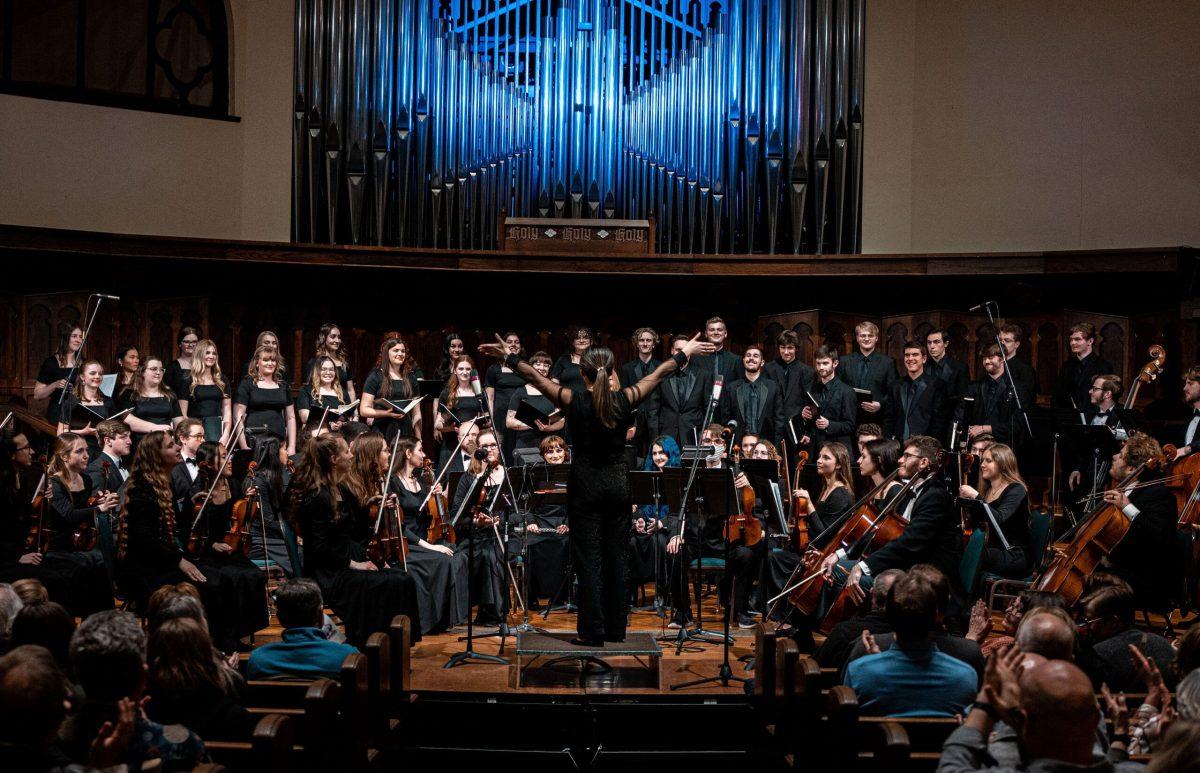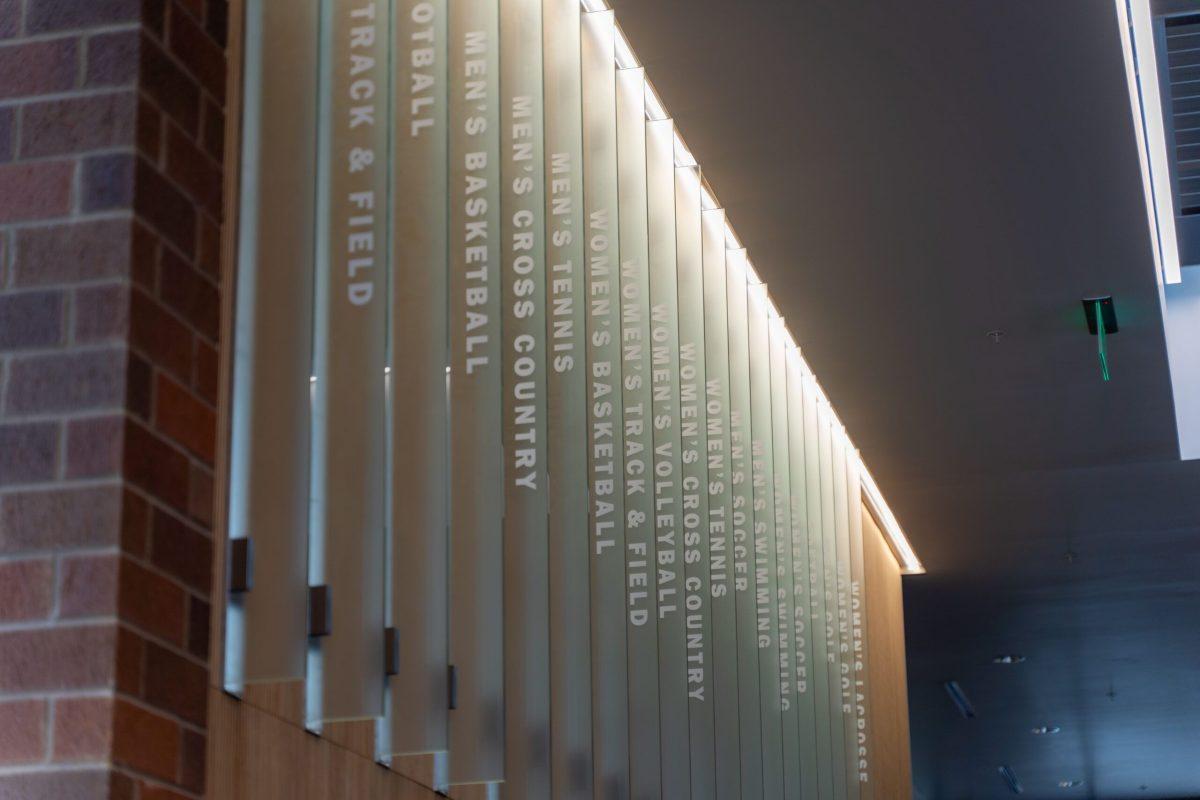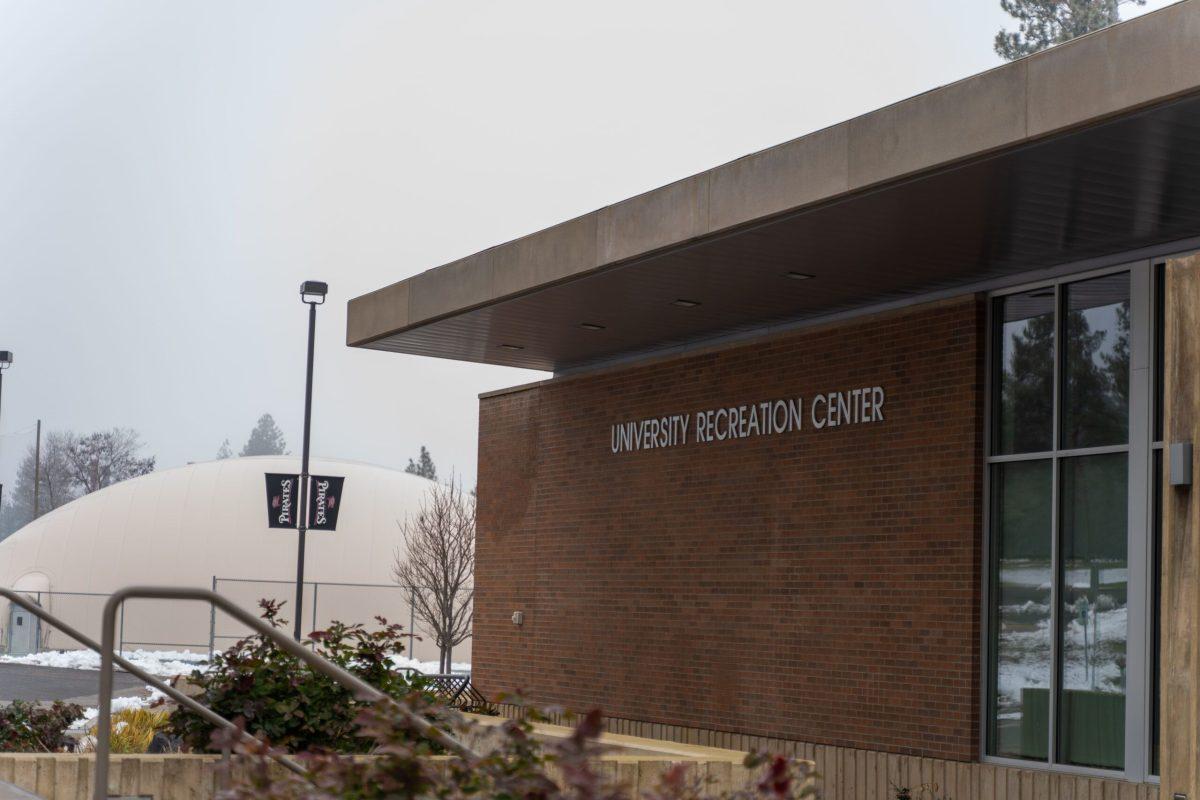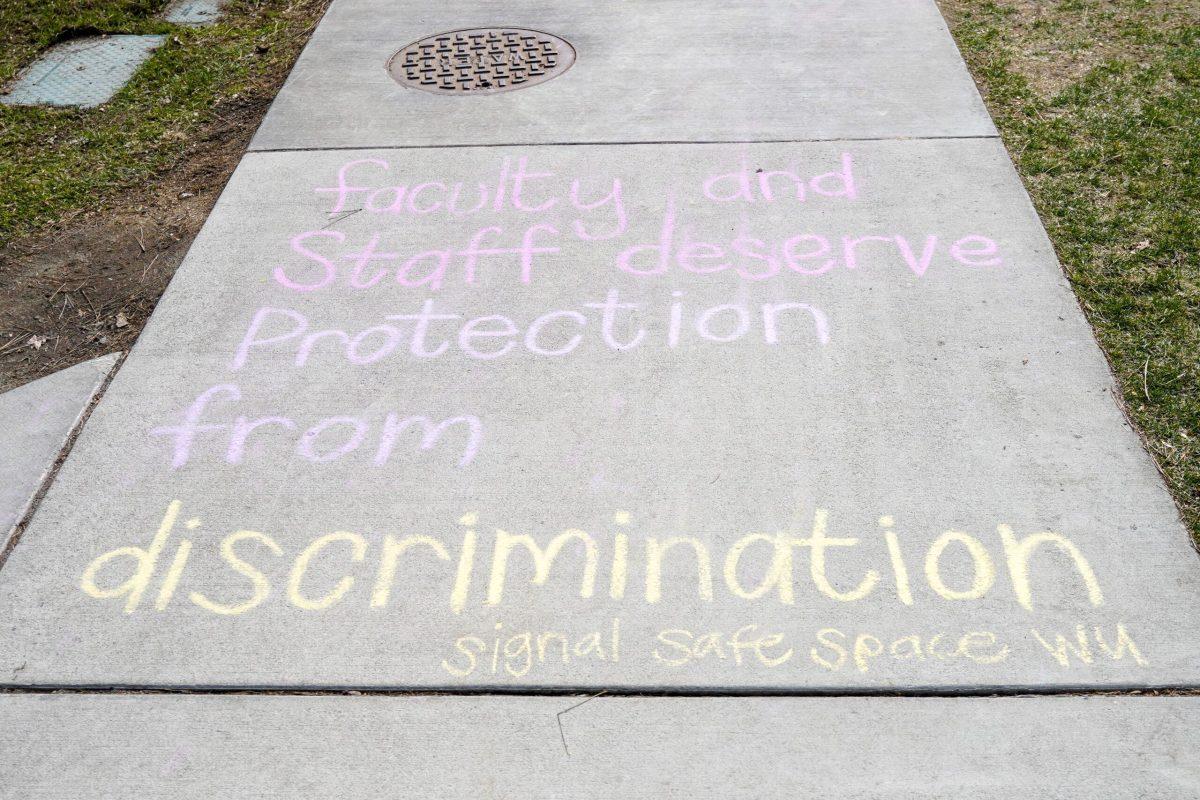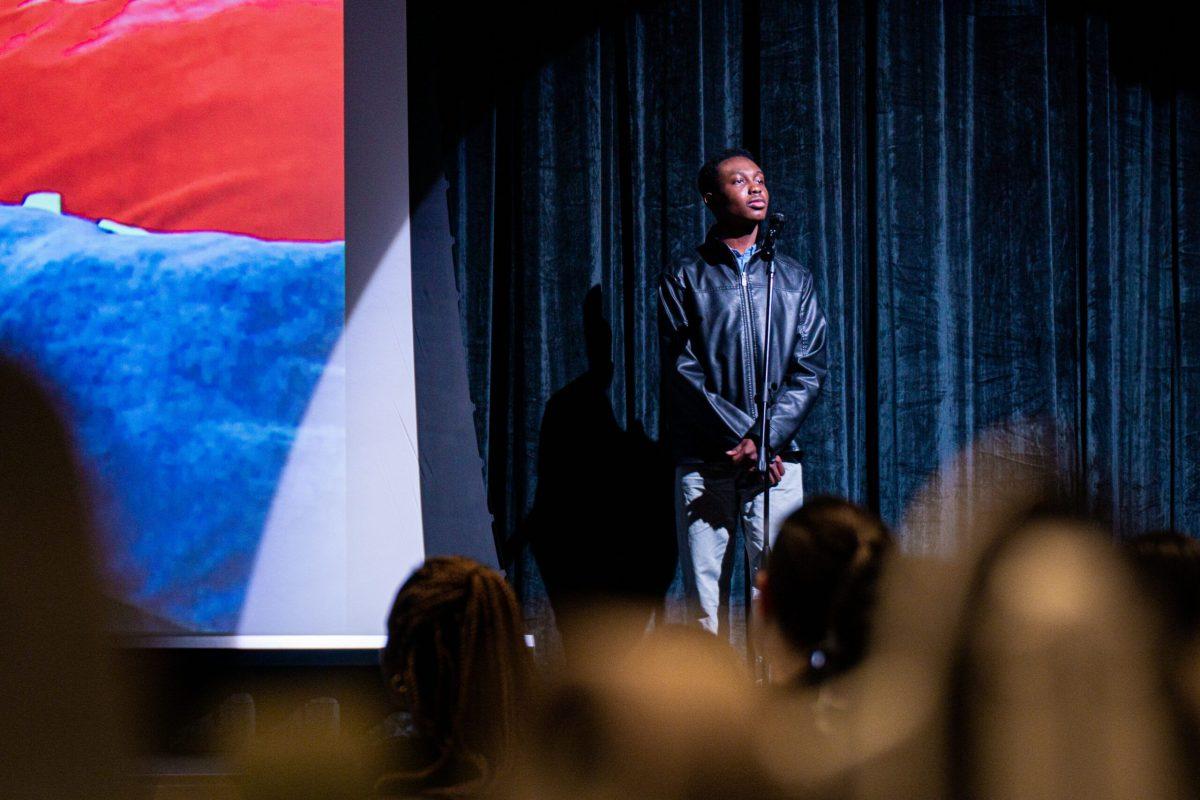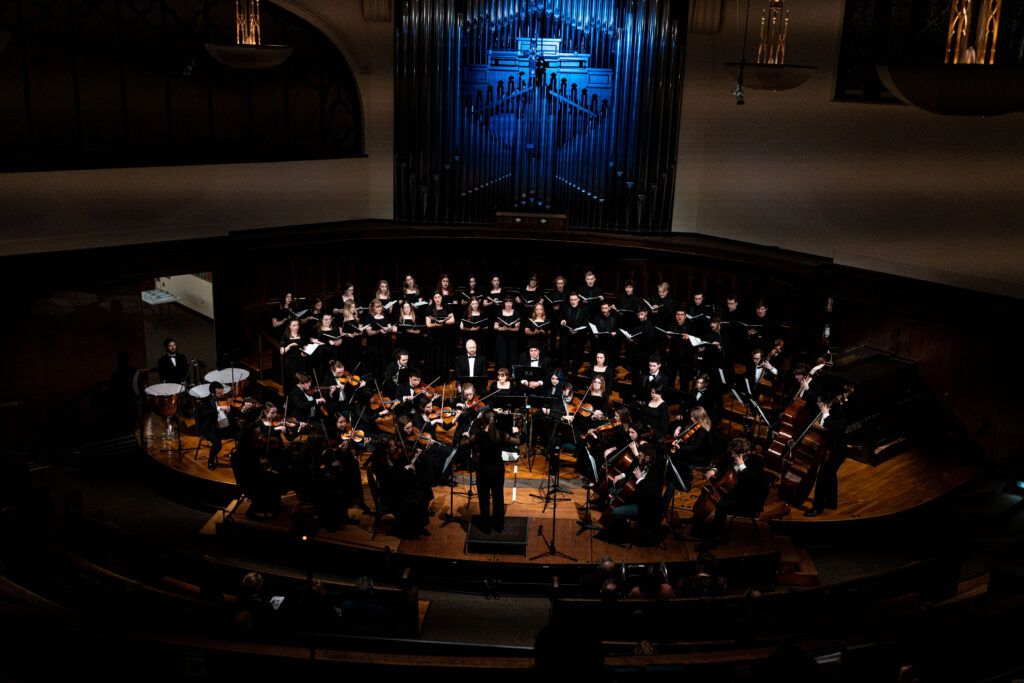
The Whitworth Choir and Symphony Orchestra had an enthusiastic audience for their performance on Saturday, March 11, at First Presbyterian Church of Spokane.
The concert showcased Whitworth students’ musicianship under the direction of the Whitworth Choir Director Dr. Xiaoshia Lin and Whitworth Symphony Orchestra Director Dr. Philip Baldwin.
Baldwin played alongside his students as a violinist, while Lin introduced each song, its historical context and its meaning before conducting the students.
The concert consisted of masterworks from Wolfgang Amadeus Mozart and Fanny Mendelssohn. The performance entitled “Die Kleine Meisterwerke” (translates to The Little Masterpieces), featured “Veni Sancte Spiritus,” “Regina Coeli” and “Misericordias Domini” by Mozart, as well as “Hiob” by Mendelssohn. Both composers conducted these masterworks during their youth, according to Lin.
Senior Joel Zoolkoski, a biology major, is not only a tenor in the Whitworth Choir but also one of its spirit and life coordinators. Zoolkoski found the collaboration between the choir and orchestra to be an exciting opportunity.
As a spirit and life coordinator, Zoolkoski researched the religious meaning behind the pieces and presented his findings to the choir. “I have the opportunity to dig into some of the scriptural texts from the music to help us understand them,” he said.
Zoolkoski and his fellow spirit and life coordinator “also help prepare encouragement for the choir every week.”
Among the compositions that Zoolkoski helped the choir understand and interpret, he taught the scripture in Mendelssohn’s “Hiob,” which is a retelling of Job’s suffering and subsequent questioning of God. “The lyrics from her piece are quoted from the book of Job in the Bible,” he said. “They focus on how suffering can seem like a betrayal from God, but we can still make a choice to trust him.”
Before the choir and orchestra performed “Hiob,” Lin talked about the difficulties Mendelssohn faced as a woman composer during her time.
Zoolkoski expanded upon Lin’s interpretation, saying, “She was prohibited from going into a career in music because of her gender. She nevertheless composed a lot.”
Second-year Emma Childs, a campus ministry coordinator, attended the concert. Childs expressed how she felt connected to Mendelssohn’s pursuit of her talents and passions despite the gender discrimination she faced.
As a woman in pursuit of her own passions, Childs shared how the delivery of “Hiob” and the story behind it inspired her. “As a woman today, I cannot understand the sufferings Fanny went through as a woman in her day,” she said. “But, it is because of women like her that I have rights today. It was truly a holy moment to hear her music.”
Childs also elaborated on her reaction to Mendelssohn’s dedication to God. “I found Fanny’s passion for music and passion for worshiping the Lord truly inspiring,” she said. “It showed that no earthly suffering or obstacle will get in her way from using the gifts that God has blessed her with to glorify Him… It was truly a beautiful performance. Something I’ve never experienced before, but something I would like to go to again.”
If you didn’t have the chance to attend “Die Kleine Meisterwerke,” you can watch a recording of the performance here.

